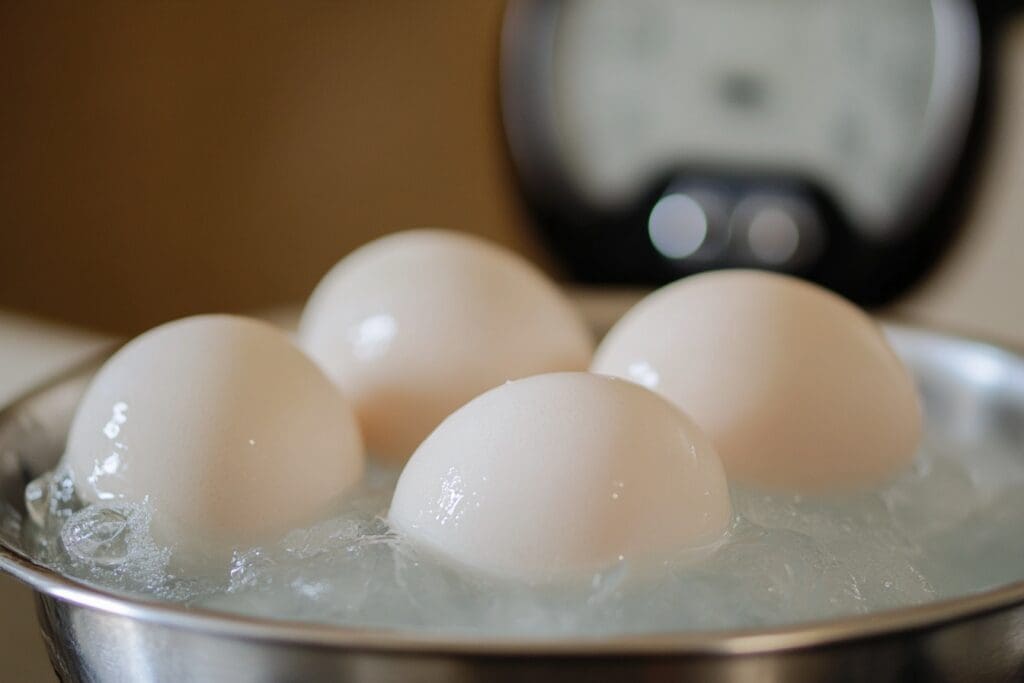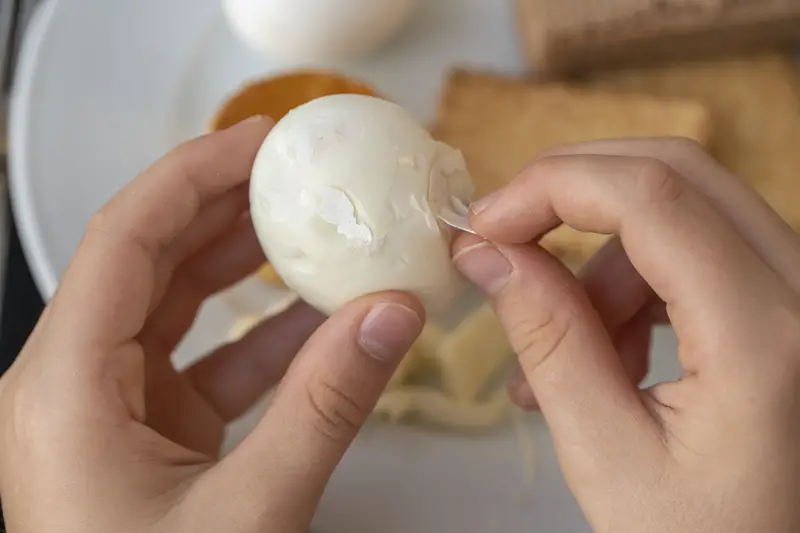The difference between a perfectly cooked hard-boiled egg and one that’s tough and rubbery often comes down to a single mistake: temperature control. When proteins in egg whites are heated too aggressively or for too long, they form tight, dense bonds that squeeze out moisture, resulting in that dreaded rubber-like texture. But achieving the ideal texture isn’t rocket science—it’s protein science.
The science behind rubber egg syndrome

When you heat an egg, its proteins begin to change. These proteins first break down, then form new, stronger bonds. At the right temperature, this creates the tender, firm texture we want. However, excessive heat forces these protein bonds to become too tight, pushing out water and creating that characteristic rubbery texture.
This transformation isn’t just about texture—it can affect appearance too. Ever noticed a greenish-gray ring around your egg yolk? That’s another sign of overcooking, caused by a reaction between the sulfur in the egg white and the iron in the yolk.
Start with cold or hot water
One of the most debated aspects of egg boiling is whether to start with cold or hot water. Starting with boiling water actually helps prevent rubbery eggs by reducing the overall cooking time. This method also makes the eggs easier to peel, as the rapid temperature change helps separate the membrane from the shell.
However, if you prefer the cold water method, bring the water to a boil, then immediately remove it from heat and let the eggs sit covered for about 10-12 minutes. This gentler approach gives you more control over the final texture.
Perfect timing prevents tough eggs

The sweet spot for cooking time varies based on your method. Steaming eggs requires about 12 minutes, while the traditional boiling method needs 10-11 minutes. What if you left them for 20 minutes? The proteins would continue forming bonds, creating an increasingly dense and rubbery texture.
Size matters too—larger eggs need slightly more time than smaller ones. For consistent results, use eggs straight from the refrigerator and adjust your timing accordingly.
The ice bath is non negotiable
Here’s where many home cooks go wrong: skipping the ice bath. Immediately transferring cooked eggs to ice water isn’t just about making them easier to handle—it’s crucial for stopping the cooking process.
Even after removing eggs from heat, their internal temperature continues rising, potentially overcooking them. A 15-minute ice bath ensures the eggs cool completely, preserving that perfect texture you worked so hard to achieve.
Alternative methods worth considering

While traditional boiling works well, steaming eggs offers more consistent results. The gentle, even heat of steam helps prevent the aggressive protein bonding that leads to rubbery eggs. Plus, steam’s consistent temperature means you’re less likely to overcook them.
Some swear by adding vinegar or baking soda to the cooking water. While these additions won’t prevent rubbery eggs directly, they can make peeling easier, reducing the chance you’ll manhandle the eggs and create tough spots.
Understanding how proteins respond to heat is the key to perfect hard-boiled eggs. By controlling the cooking temperature, timing your cook perfectly, and using an ice bath, you’ll achieve tender, creamy eggs every time. Remember: proteins are sensitive to heat—treat them gently, and they’ll reward you with the perfect texture.

